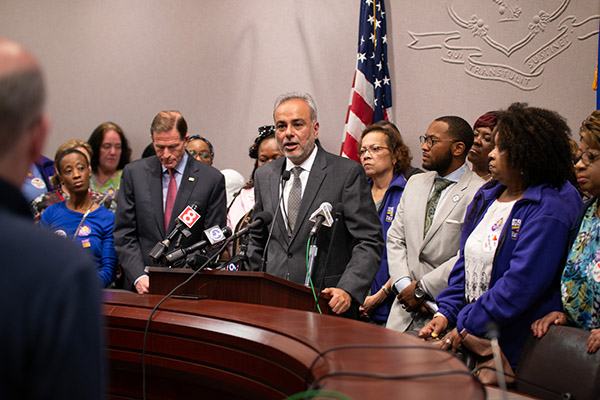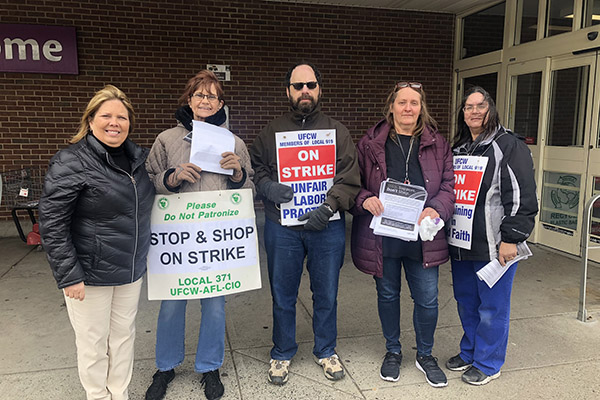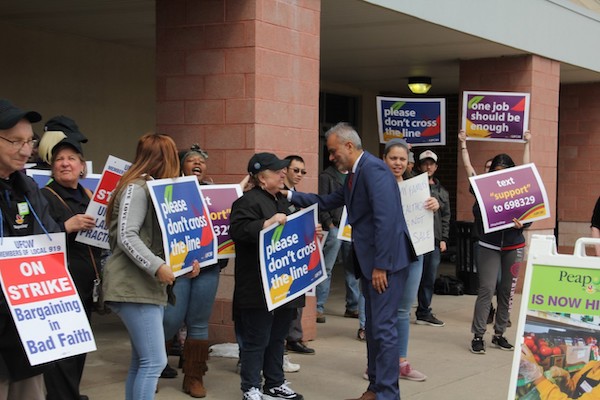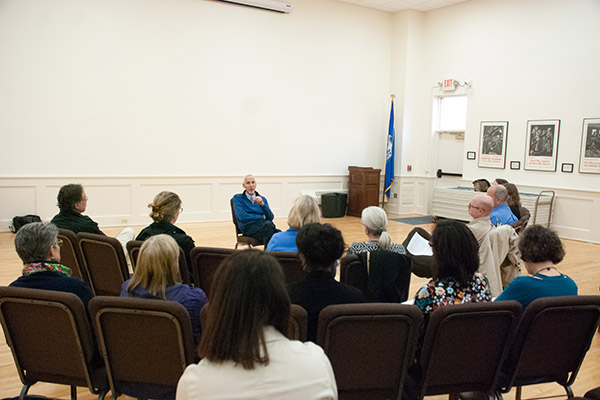Senators McCrory, Kushner, Abrams and Anwar Join Nursing Home Workers in Support of Impending Strike

State Senators Saud Anwar, Julie Kushner, Mary Abrams and U.S. Senator Richard Blumenthal stand with nursing home workers at a Monday press conference concerning a possible upcoming strike.
HARTFORD, CT – Today, State Senators Mary Daugherty Abrams (D- Meriden, Middlefield, Rockfall, Middletown, Cheshire), Saud Anwar (D-South Windsor), Julie Kushner (D-Danbury) and Douglas McCrory (D-Hartford) joined U.S. Senator Richard Blumenthal and more than 75 certified nursing aides, registered nurses, licensed practical nurses, housekeepers and dietary workers, all members of SEIU 1199 New England, in solidarity with them as they prepare to strike beginning May 1. The nursing home workers demand wage increases, better oversight of nursing home staffing ratios, and protection of quality health care services for nursing home residents.
The impending strike, planned to move forward on May 1, comes as wages of nursing home workers are stagnant, having increased just 2 percent since 2015. The current budget bill for 2019-2020 currently lacks funding for wages, which will lead to nurse assistants receiving minimal wage increases of only 30 cents over five years, drastically outpaced by the rise of inflation.
Caregivers are also seeing lower staffing ratios at nursing homes, which comes just as nursing home residents require additional care. A key priority for the Senate Democrats this legislative session is Senate Bill No. 375, which if approved would lead to increased oversight of nursing home staffers, requiring homes to track the ratios and numbers of workers on staff on a daily basis and set minimum levels of daily care for patients. If this legislation is passed, it represents an opportunity to alleviate the challenges nursing home workers face while better protecting their patients.
“While I am a Senator, I am a physician as well,” said Sen. Anwar. “Studies show that when you do not have the appropriate level of staffing in a nursing home, the number of falls and hip fractures increase. We also know hospitalization risks are much higher when you don’t have enough staff. And one-third of the elderly with hip fractures die from their complications. This is a matter of life or death. We are paying for it, but we might as well pay early and prevent all of that. The best return on investment is to invest in the workforce and make sure they’re treated with respect and honor, as they are doing honorable work. Nursing home owners need to put their money into the right place. If we want a sustainable society, we must make sure 1199 and all the workers taking care of the most vulnerable people are protected.”
“I am honored to stand with the workers of 1199 SEIU in their courageous fight,” said Sen. Abrams. “As Senate Chair of the Public Health Committee, I am particularly concerned that low pay and understaffing in nursing homes will negatively impact patients and workers alike. Nursing home staff work tirelessly to care for some of the most vulnerable members of our population. They deserve to be compensated fairly.”
“We are asking for appropriations that allow us to settle contracts that move workers ahead. We need to raise wages in nursing homes,” said SEIU 1199 President Rob Baril. “Most nursing home workers are women. Most are black and brown. It is a labor of love. They give up themselves in caring for the sick, the infirm and the elderly, but you cannot pay the rent with love. Workers in this industry have been limited to a 1 or 2 percent raise, if they get a raise at all. Homes are struggling to find workers. We are standing up for stable care for our residents. We know well-paid workers are those who can give their residents the very best. But after no raise allocated from 2016 to 2020, what we’re talking about is a 25-30 cent raise over a period of five years. That is not enough. We refuse to be second-class citizens. We are here to ask the legislature and the governor to do what is right.”



